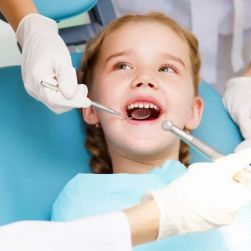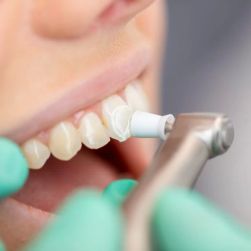Understanding and Managing Dry Mouth in Seniors
- 1. What is Dry Mouth and Why Does It Affect Seniors?
- 2. Common Causes of Dry Mouth in the Elderly
- 3. Health Risks Associated with Dry Mouth
- 4. Practical Tips for Managing Dry Mouth in Seniors
- 5. Real-Life Stories and Successful Treatments
- 6. Where to Find Help for Dry Mouth
1. What is Dry Mouth and Why Does It Affect Seniors?
Dry mouth, or xerostomia, occurs when the salivary glands produce insufficient saliva. It is particularly common in seniors, often due to age-related changes or underlying health conditions. Saliva is crucial for maintaining oral health as it helps neutralize acids, wash away food particles, and prevent bacterial growth.
For seniors, dry mouth can lead to discomfort, difficulty eating or speaking, and increased risk of dental problems. Recognizing and addressing this issue early can significantly improve quality of life.
2. Common Causes of Dry Mouth in the Elderly
Several factors contribute to dry mouth in seniors:
- Medications: Many medications, including those for hypertension, depression, and allergies, list dry mouth as a side effect.
- Chronic Conditions: Conditions like diabetes, Parkinson’s disease, and Sjögren's syndrome can reduce saliva production.
- Dehydration: Seniors are more prone to dehydration, which exacerbates dry mouth symptoms.
- Radiation Therapy: Treatment for head and neck cancers can damage salivary glands, causing dry mouth.
Understanding these causes can help in identifying effective treatments and preventive measures.
3. Health Risks Associated with Dry Mouth
Untreated dry mouth can lead to several oral health issues, including:
- Tooth Decay: Reduced saliva allows harmful bacteria to thrive, increasing the risk of cavities.
- Gum Disease: A lack of saliva can lead to gum inflammation and periodontal disease.
- Oral Infections: Conditions like oral thrush are more likely in a dry mouth environment.
- Difficulty Swallowing: Dry mouth can make it hard to chew and swallow food, impacting nutrition.
Regular dental check-ups are essential to address these risks promptly.
4. Practical Tips for Managing Dry Mouth in Seniors
Here are some effective strategies for alleviating dry mouth symptoms:
- Stay Hydrated: Encourage frequent sips of water throughout the day.
- Chew Sugar-Free Gum: Stimulate saliva production with gum or lozenges containing xylitol.
- Use Saliva Substitutes: Over-the-counter sprays or gels can provide temporary relief.
- Adjust Medications: Consult a healthcare provider to explore alternatives with fewer side effects.
- Maintain Oral Hygiene: Brush with fluoride toothpaste and use alcohol-free mouthwash to protect teeth and gums.
These simple steps can significantly reduce discomfort and improve oral health.
5. Real-Life Stories and Successful Treatments
One senior from Seattle shared their experience of overcoming dry mouth with the help of saliva substitutes and regular dental visits. By following their dentist’s advice, they noticed improvements within weeks.
Another individual highlighted the importance of hydration and diet changes. Avoiding caffeinated drinks and incorporating more water-rich foods made a noticeable difference in managing their symptoms.
These stories demonstrate the value of proactive care and professional guidance in addressing dry mouth.
6. Where to Find Help for Dry Mouth
If you or a loved one is struggling with dry mouth, professional care is crucial. At Dentistry Toothtruth, we offer personalized solutions to help seniors manage dry mouth effectively. From preventive care to advanced treatments, our team is here to support your oral health journey.
Ready to take the next step? Contact us today to learn more about our services or schedule an appointment. A healthier, more comfortable smile awaits!






